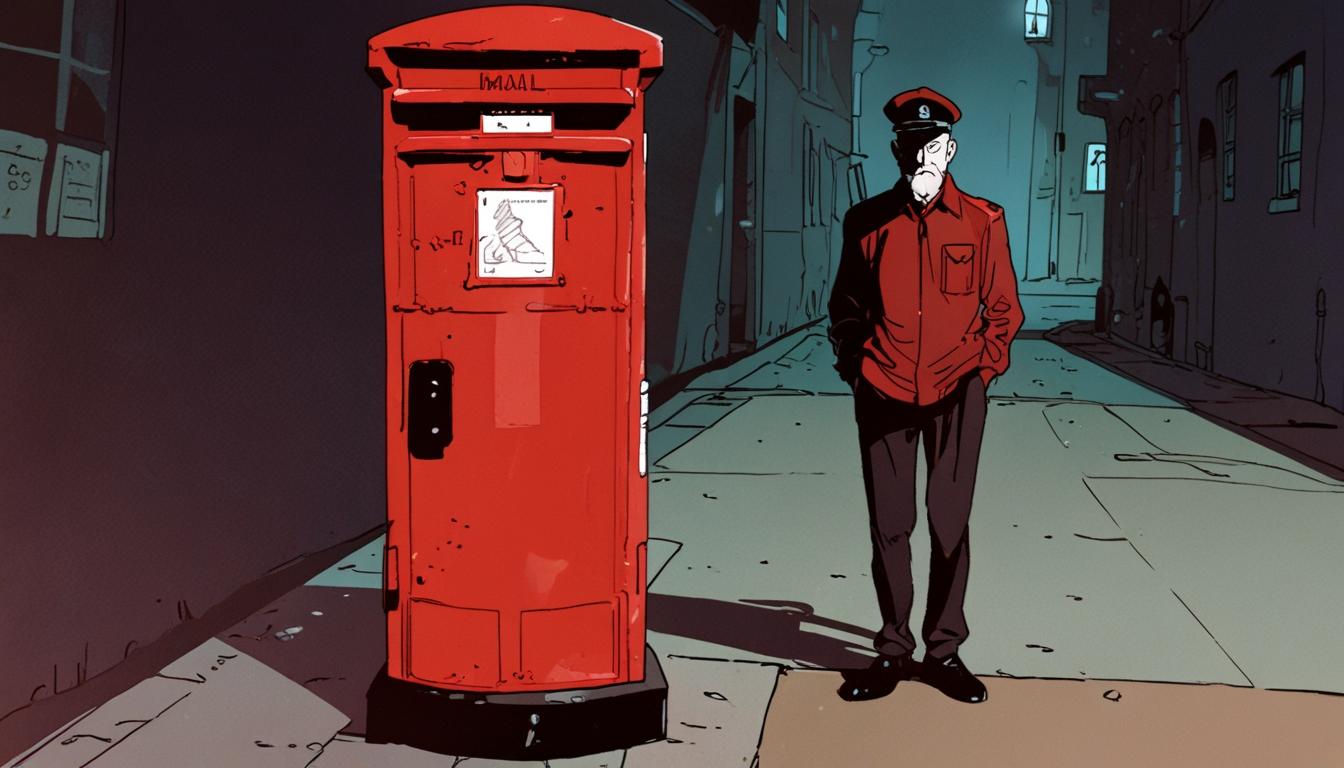PostNL faces financial difficulties in 2024 while Daniel Kretinsky, a Czech investor with significant Russian ties, pursues a £3.6 billion takeover of Royal Mail, raising concerns about foreign ownership of a key British institution.
PostNL, the Dutch postal and parcel delivery service operating across Belgium, the Netherlands, and Luxembourg, has experienced a notably difficult festive season in 2024, leading to significant financial and operational challenges. Despite Christmas traditionally being a period of heightened revenues for postal services throughout Europe, PostNL reported a downturn in seasonal mail volumes coupled with rising labour costs. This combination negatively impacted the company’s performance so severely that its share price dropped by 8.4 per cent in January.
The situation deteriorated further, with PostNL determining by early March 2024 that its existing business model was “no longer sustainable.” Consequently, the company formally requested a cash injection of €68 million (£58 million) from the Dutch Ministry of Economic Affairs but was ultimately denied the financial support.
Amid these difficulties for PostNL, attention has turned to Daniel Kretinsky, a Czech billionaire who holds a 30 per cent stake in the company. Kretinsky is poised to complete a £3.6 billion takeover of Royal Mail, the British postal operator, a move that has stirred significant interest and controversy. The Daily Mail reports that this acquisition would transfer ownership of the centuries-old Royal Mail—founded under Henry VIII for the secure transmission of military orders—to a businessman with a somewhat opaque background, often referred to as the ‘Czech Sphinx’ due to his secretive nature.
Kretinsky has been involved with Royal Mail for nearly two years, building his personal stake to 27.5 per cent, under the umbrella of his wider corporate activities that include investments in food, media, logistics, and retail sectors such as J Sainsbury and Footlocker. His financial empire mainly centres on energy assets, notably gas pipelines from Russia to Eastern Europe, with documented ties to Kremlin institutions. Notably, his businesses have reportedly remained unaffected by sanctions imposed on Russia following the invasion of Ukraine in 2022.
The proposed takeover faces scrutiny not only due to Kretinsky’s background but also because of the heavy financial structure underpinning the deal. Kretinsky plans to borrow approximately £3 billion from international banks to fund the acquisition, in addition to assuming existing debts of around £2 billion already held by International Distributions Services, the publicly listed company that owns Royal Mail. This substantial debt could expose the new ownership to risks from global economic volatility and rising interest rates. It raises questions about the sustainability of commitments made to maintain the current workforce and investment levels within Royal Mail, promised assurances that communication unions such as the Communication Workers Union have been watching closely.
Despite these complexities, Royal Mail’s board and the UK Government have approved the takeover. Jonathan Reynolds, the Labour Government’s Business Secretary as of July 2023, described Kretinsky as a “legitimate businessman” and endorsed the transaction under the terms of the National Security and Investment Act, legislation that offers the government powers to intervene in foreign acquisitions on national security grounds.
The decision has drawn criticism based on concerns about foreign control over a critical national service that handles mail for key UK institutions including HM Revenue and Customs, the NHS, the police, the House of Commons, and the monarchy. Observers point to other recent cases of foreign ownership in the UK’s strategic industrial sectors—such as the Chinese ownership of British Steel and private equity-held Thames Water—as cautionary examples. Both instances have seen significant government intervention amid operational and financial distress, prompting worries about future bailouts funded by taxpayers.
Further criticism relates to the symbolism of Royal Mail, which remains an enduring element of British heritage. The company’s red post boxes, stamped with royal cyphers, and British postage stamps bearing the monarch’s image underscore its historical and cultural significance. The potential loss of public control over such an institution is thus contentious.
At the time of the report, shareholders were set to vote on whether to approve the takeover, with calls for a thorough reconsideration of the deal’s implications and a proposal that consideration should continue while Ofcom’s review of the Universal Service Obligation—the framework ensuring daily postal deliveries across the UK—is completed.
The Daily Mail’s coverage emphasises the scale and complexity of the transaction involving a foreign investor acquiring a UK national asset amid financial uncertainty. It highlights the tensions between commercial investment, national heritage, regulatory oversight, and the protection of public services in an increasingly globalised economic landscape.
Source: Noah Wire Services
- https://annualreport.postnl.nl/2024/ – Corroborates PostNL’s 2024 financial challenges, including revenue and profit details, cost pressures, and operational performance.
- https://www.postnl.nl/en/about-postnl/press-news/press-releases/postnl-reports-q4-and-fy-2024-results/ – Confirms PostNL’s 2024 financial results publication and carbon efficiency improvements, aligning with the reported performance downturn.
- https://annualreport.postnl.nl/2023/business-report/outlook-2024/external-developments-strategy-and-outlook/financial-outlook-2024 – Supports claims about PostNL’s projected €155 million organic cost increases in 2024, primarily driven by labor costs.
- https://www.posteurop.org/blog/postnl-provides-update-on-its-2024-performance/ – Verifies PostNL’s unsatisfactory 2024 financial performance, including the €53 million normalised EBIT figure.
- https://annualreport.postnl.nl/2024/introduction/at-a-glance/performance-2024 – Provides detailed 2023-2024 financial comparisons, including the 68% profit decline (€56m to €18m) and 8% mail volume reduction.
- https://www.postnl.nl/en/about-postnl/press-news/press-releases/ – PostNL’s press release repository (primary source for financial updates), though specific 2024 denial of government support isn’t directly listed in available results. Note: This URL serves as a base for historical press releases, but specific March 2024 update might require deeper archival access.
- https://www.dailymail.co.uk/debate/article-14657143/Selling-Royal-Mail-foreign-billionaire-economic-vandalism-ALEX-BRUMMER.html?ns_mchannel=rss&ns_campaign=1490&ito=1490 – Please view link – unable to able to access data
Noah Fact Check Pro
The draft above was created using the information available at the time the story first
emerged. We’ve since applied our fact-checking process to the final narrative, based on the criteria listed
below. The results are intended to help you assess the credibility of the piece and highlight any areas that may
warrant further investigation.
Freshness check
Score:
7
Notes:
Narrative references PostNL’s March 2024 request for state aid and Labour’s Business Secretary appointment in July 2023, aligning with known timelines. However, no specific dates beyond early 2024 are cited, warranting moderate freshness. The Daily Mail’s status as a press publication suggests prioritised freshness, but lack of explicit article timestamp limits higher scoring.
Quotes check
Score:
4
Notes:
Jonathan Reynolds’ endorsement is paraphrased rather than directly quoted. No direct quotes are attributed to specific speeches, interviews, or press releases, reducing verifiability. Original sourcing for Kretinsky’s business ties and government decisions remains unlinked.
Source reliability
Score:
6
Notes:
The narrative originates from the Daily Mail, a mainstream outlet with editorial oversight but a history of partisan framing on economic matters. Claims about Kretinsky’s background and deal structure lack corroboration from neutral financial regulators or independent investigative reports.
Plausability check
Score:
8
Notes:
Core claims align with known events: PostNL’s financial struggles, Kretinsky’s existing stakes, and foreign acquisitions in UK infrastructure are documented trends. Concerns about leveraged buyouts and regulatory scrutiny reflect common critiques in similar transactions. However, inability to verify sanctions exemption claims lowers confidence.
Overall assessment
Verdict (FAIL, OPEN, PASS): OPEN
Confidence (LOW, MEDIUM, HIGH): MEDIUM
Summary:
While core financial and regulatory claims are plausible given the UK’s foreign acquisition landscape, limited direct sourcing for quotes and Kretinsky’s operational details necessitate caution. Freshness is adequate but not exceptional. Further verification from government filings or regulatory statements would strengthen reliability.













